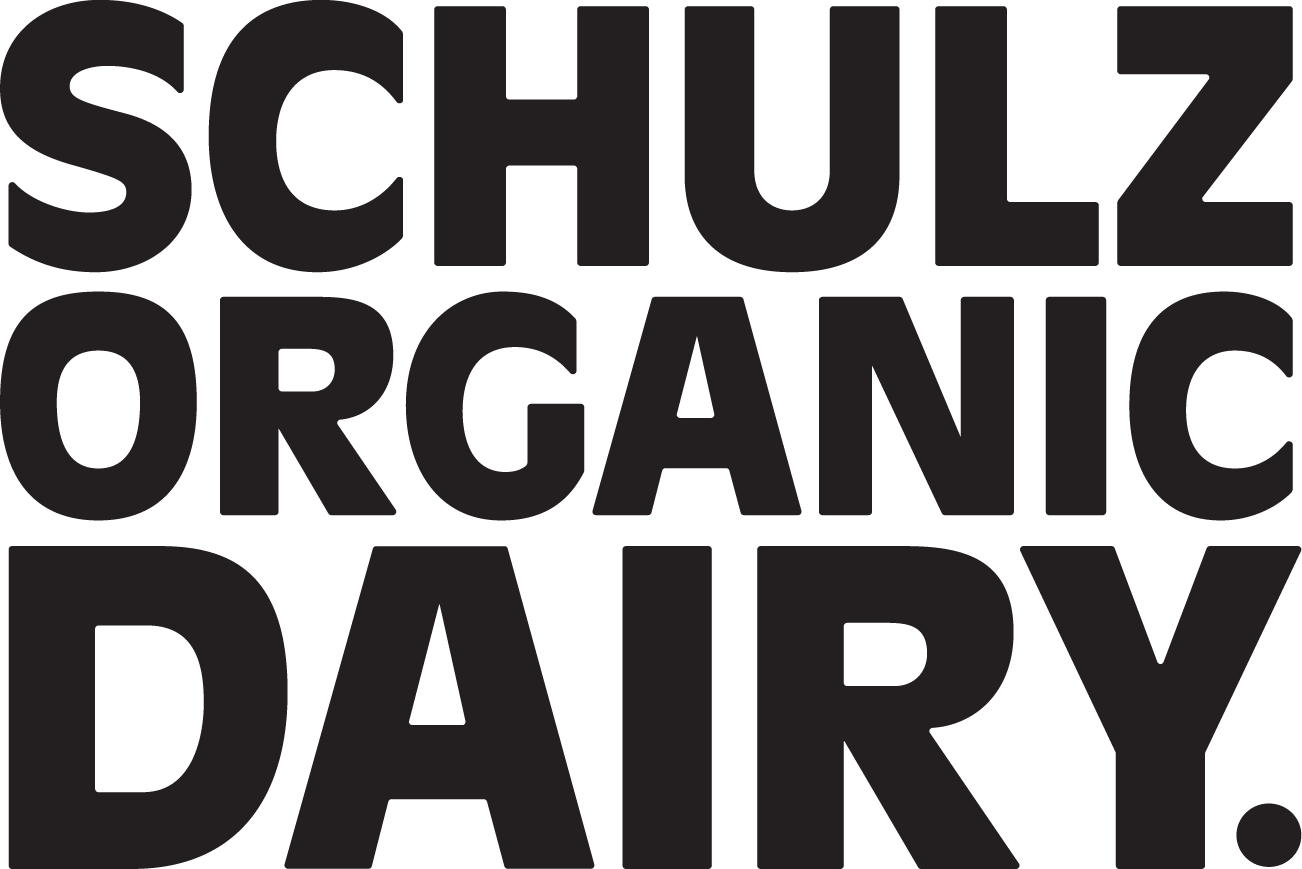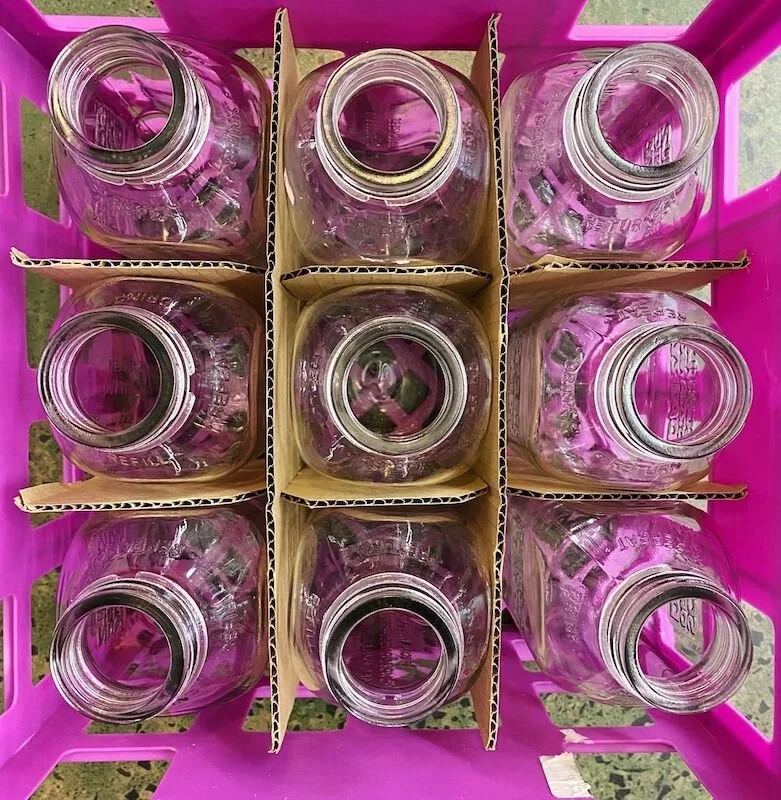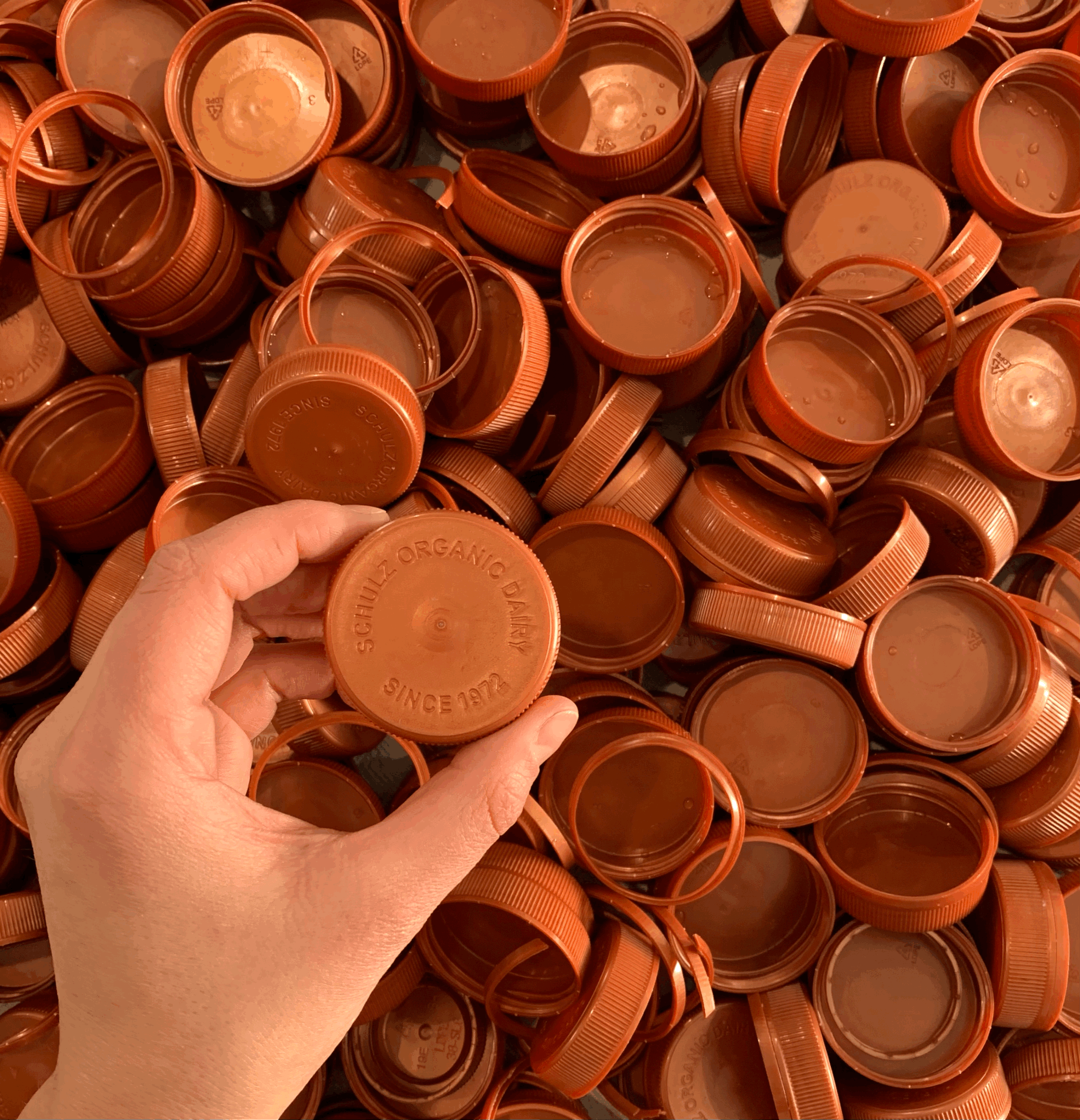At Schulz Organic Dairy, we’re always on the lookout for ways that we can improve our own footprint on the earth, and help our customers to do the same.
As a producer of perishable dairy products, unfortunately we can’t completely avoid plastic. But rest assured we are making incremental changes almost every day in the way that we operate our business – and we follow the principles of reduce, reuse and recycle as much as possible!
Read on to learn about some of the ways we are going about reducing, reusing and recycling at Schulz – and find out how you can help too.
Reducing plastic use through Schulz Milk in Glass
In 2018 we launched our award-winning Milk in Glass initiative in Victoria with a hugely successful Pozible campaign. Today, with your support, we are currently saving around 8,500kg of single use plastic per year! As it turns out, this initiative has not just been great for the planet, but also great for our product:
Each Schulz MIG bottle saves about 40g of plastic
Glass keeps the milk colder for longer
We also think milk tastes so much better in glass!
Want to learn more about our Milk in Glass initiative? Click here for more information.
Reusing plastic containers: tips and tricks
Our community is extremely innovative when it comes to re-using our yogurt, quark and cream tubs, as well as our regular plastic milk bottles! We’ve heard of them being used for all sorts of things including:
Craft projects
Storage vessels in the kitchen or shed
DIY fermentation projects like sourdough or kefir
Even as plant/seed raising pots, as irrigation systems and as bird feeders in the garden!
But our favourite comes from a chef friend, who has repurposed our tubs as tiny in-ground compost bin/worm farms. Simply cut out holes into the base and place them in soil around the garden. Once in the ground, fill the tubs with food scraps and pop the lid on, to make your own little underground compost pile! Placed throughout your garden, you’ll be sure to have a lot of happy worms - not to mention happy plants and happy soil - our favourite!
We always love to hear about your reuse hacks, and would love and share them with the community. Simply tag @schulzorganicdairy on Facebook or Instagram.
Recycling Schulz Organic Dairy plastic
Recycling is where things start to get a bit tricky. Did you know only around 10% of the plastic we use every year in Australia actually gets recycled? That’s because not everything you throw into the recycling bin actually makes it into a new product. But there are a few things you can look out for to give those pesky plastic bits their best chance at a new life.
Check your numbers and know your local recycling rules
All recyclable plastic will be marked with a number – but not all numbers are created equal, and you will need to check with your local council to find out which numbers are acceptable for recycling in your home recycling bin. The plastic we use at Schulz Organic Dairy is marked with numbers #2, #4 and #5.
In addition, every council is different when it comes to the size and condition of the plastic that it accepts - sometimes plastic will need to be washed clean, other times not. Some councils will happily accept things like milk bottle lids in the home bin - and, you guessed it, others won’t. So if in doubt, contact your local council. They’ll be happy to hear from you!
Give us back your bronze plastic lids and collars at a local Farmers Market!
As of June 2021, we are working with the good people at The Melbourne Farmers Markets and Rethink Recycling Co-op to pilot a plastic lid collection program at the Alphington Farmers Markets each Sunday.
How does it work? Just return your Schulz bronze-coloured lids and rings (cleaned and with the white seal removed) to the markets, and Rethink Recycling Co-op will work towards making them into a beneficial new product.
Our milk bottle lids are made from Low-Density Polyethylene (LDPE). Mat Card, Founder and President of Rethink Recycling Co-op says, “LDPE #4 is quite versatile and can be processed through our machines with no issue.” This type of plastic is commonly recycled into new recycling wheelie bins and plastic lumber (often used in landscaping and public spaces). How handy!
We’ll be sure to report back with updates as our partnership with Rethink Recycling Co-op grows.
What about those foam seals?
We do occasionally get asked about the white foam seals underneath the lid of our Milk in Glass. These are necessary due to the nature of glass bottles being imperfectly formed (almost imperceptible to the eye, we know – but true nonetheless!) Unfortunately these are NOT recyclable, so please make sure you remove the seal before placing lids and collars into your recycling bin or lid collection locations.



